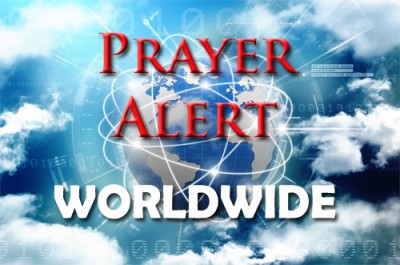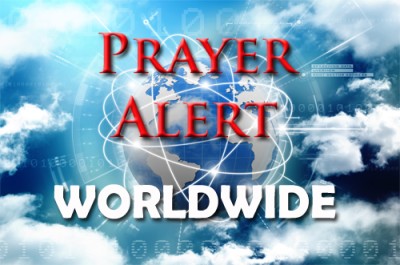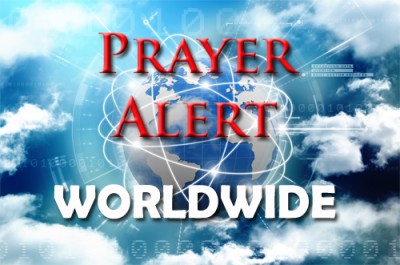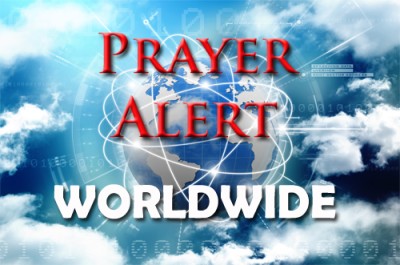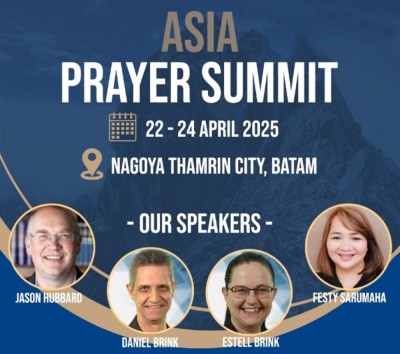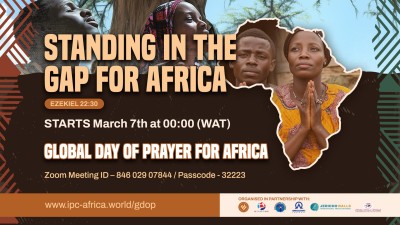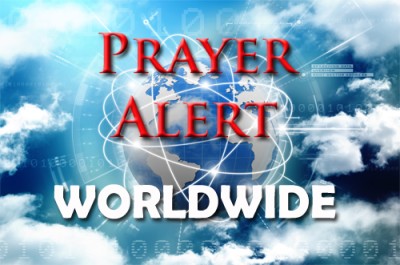Tunisia: forty opposition figures put on trial
06 Mar 2025The trial has begun of forty prominent Tunisian opposition figures accused of conspiring against state security. The proceedings sparked outrage as nine detained defendants were forced to attend remotely, a move decried as a violation of fair trial standards. Families of the accused and demonstrators outside the courthouse demanded transparency and judicial integrity, chanting against political repression. While critics regard the trial as part of president Kais Saied’s crackdown on dissent, some citizens support his actions, blaming the opposition leaders for economic hardships. International organisations, including Amnesty International and the UN, have condemned the mass prosecution as a sign of Tunisia’s democratic decline. Meanwhile, the country’s economic crisis deepens, with inflation, unemployment, and stalled IMF negotiations adding to public discontent. The outcome of the trial could shape Tunisia’s political future and global standing.
Pakistan: suicide bombers target military base
06 Mar 2025At least twelve people were killed and thirty wounded in a deadly militant attack on a military base in Bannu, northwestern Pakistan. Two suicide bombers detonated explosive-laden vehicles near the base’s wall, allowing several attackers to attempt entry before being eliminated. The attack occurred after sunset, when many would have been breaking their Ramadan fast. A Taliban-linked group, Jaish Al-Fursan, claimed responsibility. The explosions damaged homes, causing roofs and walls to collapse, killing civilians, including four children. A nearby mosque was also severely impacted, with the imam among the dead. Prime minister Shehbaz Sharif condemned the assault, and the province's chief minister has ordered an investigation. This was the third militant attack in Pakistan since Ramadan began, continuing a pattern of escalating violence in the region. Security forces remain on high alert following the assault.
Japan: worst wildfire in fifty years
06 Mar 2025Japan is battling its worst wildfire in fifty years, with over four thousand residents evacuated and one confirmed dead. The blaze, which started near the northern town of Ofunato, has consumed around 2,600 hectares. It follows Japan’s hottest recorded summer, exacerbated by climate change and low rainfall. Firefighters and military helicopters are struggling to contain the flames, with no sign of control. Nearly two thousand firefighters, many from Tokyo, are on the scene. The Iwate region, previously devastated by the 2011 tsunami, now faces further hardship. Authorities continue to assess the damage, which includes at least eighty buildings. While wildfires in Japan have declined since the 1970s, the country still saw 1,300 in 2023, mostly during the months of February to April when the air dries and winds pick up.
Indonesia: severe flooding in and around Jakarta
06 Mar 2025Severe flooding in Jakarta and surrounding areas has displaced thousands and caused significant property damage. Torrential rains since 3 March have raised water levels by up to three metres, submerging over a thousand homes and vehicles. The capital’s governor has declared a heightened alert, ordering water pumps and cloud seeding operations to reduce rainfall. Bekasi has been hit hardest, with floodwaters inundating a hospital, forcing patient evacuations and causing power cuts. Rescue teams are using boats to assist trapped residents. This is Jakarta’s worst flooding since 2020, when record rains claimed sixty lives. Authorities are closely monitoring the situation and coordinating relief efforts, including evacuations, food distribution, and emergency services. The weather agency has warned that heavy rains may persist until 11 March, potentially worsening conditions. Residents are urged to remain vigilant and adhere to guidance from local authorities.
Venue: Batam, Indonesia
Our Theme: CALL to the WALL (Isaiah 62:6-7)
Our Vision: Asian cities transformed through continuous 24-7 prayer...
The Purpose of this Summit: To encourage, equip and establish night-and-day prayer in every nation across Asia by 2033.
We are trusting the Lord for at least two delegates from each country across Asia/Oceania to attend this timely, strategic event.
Who should attend:
- All believers who desire a deeper walk with God.
- Leaders of existing 24-7 Prayer Ministries & Networks.
- Leaders with a vision to establish a 24-7 Prayer Watch in their church or city
Please share this invitation with your networks as you prayerfully consider inviting leaders who would be able to assist in expanding 24-7 Prayer in your city/nation.

More information and registration: https://www.asiaprayersummit.id
Presented by: Jericho Walls International Prayer Network | International Prayer Connect (IPC)
 Thank you so much for being with us on this worship and prayer journey - Exalting Jesus, catalyzing united prayer for Kingdom transformation of peoples, cities and nations!
Thank you so much for being with us on this worship and prayer journey - Exalting Jesus, catalyzing united prayer for Kingdom transformation of peoples, cities and nations!
All Glory to the Lamb!
Jason Hubbard - Director
International Prayer Connect
March 7, 2025
Starts 0:00 HRS (WAT)
Join us Online HERE (Code 32223)
This event is being convened at very short notice, in response to a burden being shared with IPC’s regional leaders a few days ago. If you share our sense of urgency, DO PRAY! – as and when you are able, or join us online.
We invite you to be part of this global prayer movement for Africa on March 7-8, 2025, as we stand in the gap for the continent's troubled nations, especially Congo and Sudan.
This 24-hour prayer event will unite churches, prayer networks, and intercessors worldwide, seeking God’s intervention for Africa’s ongoing crises.
Starts: March 7 at 00:00 WAT
March 6: 3PM Seattle | 6PM New York | 11PM London
March 7: 1AM Jerusalem | 4:30AM New Delhi | 6AM Singapore |
7AM Tokyo | 9AM Sydney
Pray from home, church, school, work – wherever you are.
Download Prayer Guide | Read the Full Invitation | 24HR Schedule & More Info
Join us Online HERE (Code 32223)
24 Hour Zoom Call starts at 0:00HRS (WAT) - Friday 7th March 2025
With wars, poverty, displacement, and instability affecting millions, now is the time to pray! Let it not be said that we stood idle when Africa needed intercessors. Will you stand in the gap?
I looked for someone among them who would build up the wall and stand before me in the gap on behalf of the land so I would not have to destroy it, but I found no one. Ezekiel 22:30
Prayer and mission leaders from across the world will be hosting and leading our worship and prayers each hour during this 24-hour relay.
Join us and spread the word!
“Continue steadfastly in prayer, being watchful in it with thanksgiving” Colossians 4:2 (ESV)
I’d like to invite you to join millions of Christians of all ages, as we pray for revival across the Muslim world during the month of Ramadan.
We have prepared adult and children’s prayer guides that focus each day on a key Muslim world city that is ripe for revival! The guides are available online in 33 languages and 10 languages in pdf format.
Daily Prayer Fuel! - You can also receive daily prayer pointers to your email inbox during the 30 days and beyond, by signing up to the 110 Cities ‘Pray 4’ Guides HERE
Global Day of Prayer - March 27th
The 30 Days of prayer culminate with One Miracle Night - an annual, one-day event that unites Christians around the world to pray for 1.8 billion Muslims to encounter Jesus Christ.
Focused on 30 unreached megacities, One Miracle Night is a live, 24-hour prayer event that takes place on Thursday, 27th March 2025, starting at 9am EST.
During the One Miracle Night Global Day of Prayer, we invite you to join us in praying for Revival in 3 directions:
- Personal Revival
- Revival in your Local Church, and
- Revival across the Muslim World
These Muslim world cities are Ripe for the Harvest! I believe that God releases his power in response to the prayers of his people.
Do join us as you are able!
Please would you kindly cascade this invitation to your contacts, congregations and networks.
All glory to the Lamb!
Dr Jason Hubbard – Director
International Prayer Connect
Christians in India are requesting urgent prayers after the spread of viral videos inciting mob violence against them on 1 March. During a massive Hindu pilgrimage, Aadesh Soni accused Christians in Chhattisgarh state of killing cows and called for vigilante action. Another religious leader urged followers: ‘Do not ask for the death penalty for cow slayers. Kill them and ask for the death penalty for yourselves. Do not wait for the law to act.’ Social media platforms and WhatsApp groups are mobilising thousands to take part in the attacks. Though Soni later claimed he is not against Christians, believers remain fearful. Police are patrolling targeted villages, and Christians are calling on local authorities to prevent the violence. Chhattisgarh has long been a hotspot for Christian persecution, with over 130 attacks recorded in 2023 alone.
